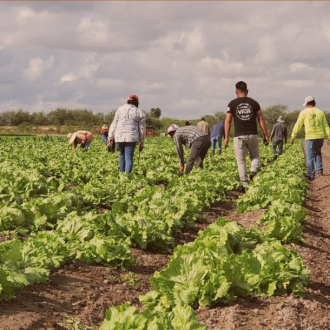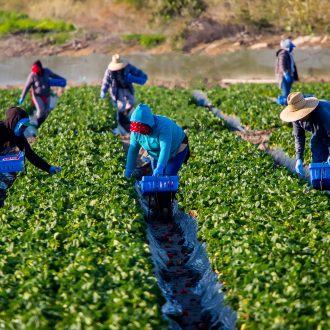One of the best ways you can stand in solidarity with farm workers is by advocating for legislation that improves their working and living conditions. In January of 2023, we held a free webinar about some best practices for legislative advocacy. You can watch the recording on YouTube in English or with Spanish translations.
We have created an overview of some of the current legislation that will have an impact on farm workers. All the legislation still needs to be introduced in the 118th Congress (2023-2024). We encourage you to utilize the available resources to reach out to your legislators in support of these important pieces of legislation. Here are some tips on setting up Virtual Visits or In-district meetings with your representative.
If you would like to join NFWM on legislative visits with our farm worker partners or if you would like to have a representative of NFWM participate in a meeting with legislators related to the following bills, please contact us at nfwm@nfwm.org.
Meanwhile, make sure you follow NFWM on social media and subscribe to our newsletter so you have the latest information on the Farm Worker Movement.
Asunción Valdivia Heat Illness and Fatality Prevention Act
Last Introduced: 117th Congress (2021-2022) by Rep. Chu, Judy [D-CA-27] with 116 cosponsors
Latest Action: House – 11/07/2022 Placed on the Union Calendar, Calendar No. 393
This bill directs the Occupational Safety and Health Administration to promulgate a standard that requires employers to implement certain measures for protecting workers from heat stress and related illnesses or injuries. Further, if an employer cannot reduce exposure to heat stress below hazardous levels through engineering controls (e.g., heat shields and insulation) or personal protective equipment (e.g., heat reflective clothing), the employer must implement a program that mitigates such exposure through access to appropriate hydration and cool-down spaces, acclimatization policies, and periodic paid rest breaks.
Additionally, the bill establishes requirements concerning judicial review, implementation, enforcement, recordkeeping, and whistle-blower protections related to the standard. The bill also requires the Department of Labor to include questions about heat-related illness and injury in the National Agricultural Workers Survey.
Resources: Download the Heat Stress Info Sheet.
Ban All Neurotoxic Organophosphate Pesticides From Our Food Act or the BAN OPs From Our Food Act
Last Introduced: 117th Congress (2021-2022) by Rep. Velazquez, Nydia M. [D-NY-7] with 14 cosponsors
Latest Action: House – 08/30/2022 Referred to the House Committee on Energy and Commerce
This bill prohibits any organophosphate pesticides in food. This bill would also prohibit foods from having any residue from organophosphates, without exception and regardless of tolerances set forth by the Food and Drug Administration.
Resources: Download the One Pager on The BAN OPs Act, The BAN OPs Act Talking Points, Suggested Email Copy – English, Suggested Email Copy – Spanish (all links are pdfs).
Children’s Act for Responsible Employment and Farm Safety or CARE Act
Last Introduced: 117th Congress (2021-2022) by Rep. Roybal-Allard, Lucille [D-CA-40] with 47 cosponsors
Latest Action: House – 03/31/2022 Referred to the House Committee on Education and Labor
This bill revises labor provisions for protecting child workers, including those employed in agriculture, and increases the civil penalties for violations of such provisions and imposes new criminal penalties for violations resulting in the death or serious injury or illness of a child worker. Specifically, the bill revises the definition of oppressive child labor to prohibit the employment of children under 14 years of age and imposes new employer reporting requirements for work-related injuries or deaths of agricultural employees under the age of 18. The Department of Labor must analyze, collect, and report on data concerning children under the age of 18 who are employed in agriculture and each work-related injury, illness, or death of any such child. Labor must also revise regulations to prohibit the employment of a child under the age of 18 as a pesticide handler.
Resources: Download the CARE Act One-Pager (pdf) and CARE Act Letter Copy (pdf).
Fairness for Farm Workers Act
Last Introduced: 117th Congress (2021-2022) by Rep. Grijalva, Raúl M. [D-AZ-3] with 64 cosponsors
Latest Action: House – 05/13/2021 Referred to the House Committee on Education and Labor
This bill extends overtime pay protections to agricultural workers. The bill also repeals the exemption from overtime pay requirements for employers in various agriculture-related industries, including certain small farms, irrigation projects, sugar processing, and cotton ginning and compressing. These overtime pay requirements do not apply, as under current law, to employees who are the parent, spouse, child, or other members of the employer’s immediate family.
Resources: Download the Talking Points (pdf) and Fact Sheet (pdf).
Comprehensive Immigration Reform
Immigration policy greatly impacts farm workers. Over half of the current farm worker labor are immigrants and the majority are undocumented. Current immigration policy is inadequate and leaves many farm workers vulnerable to abuse, substandard working conditions and depressed wages. Criminalizing immigrants leaves many farm workers living in constant fear of detention, deportation and being separated from their families. Immigration reform must include pathways to citizenship for workers.
Learn more about how you can support immigration reform.



